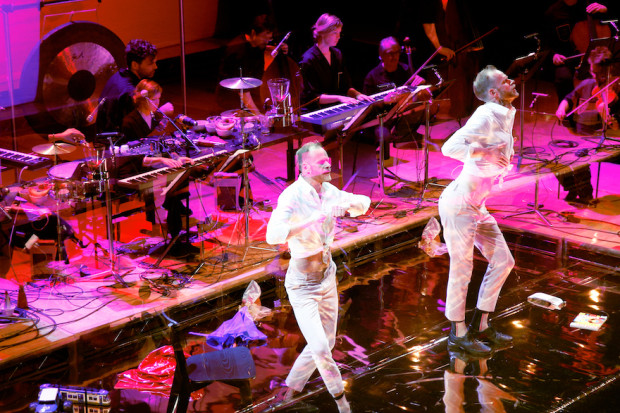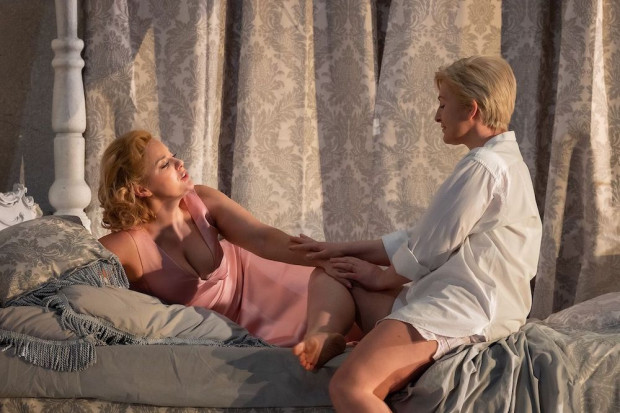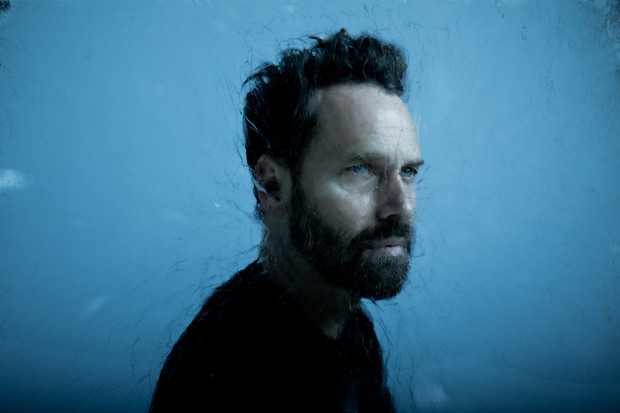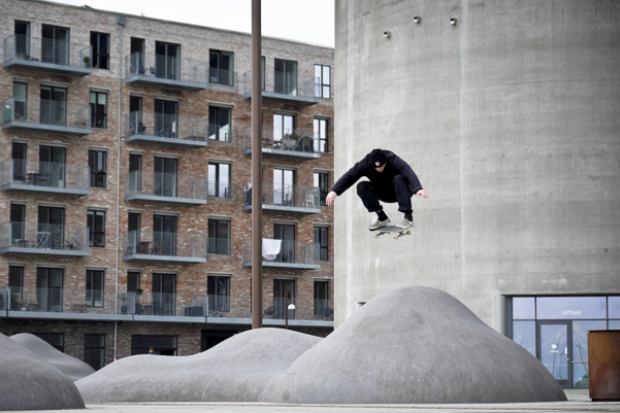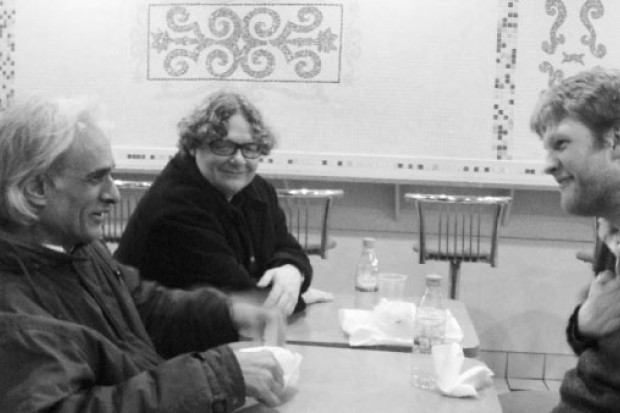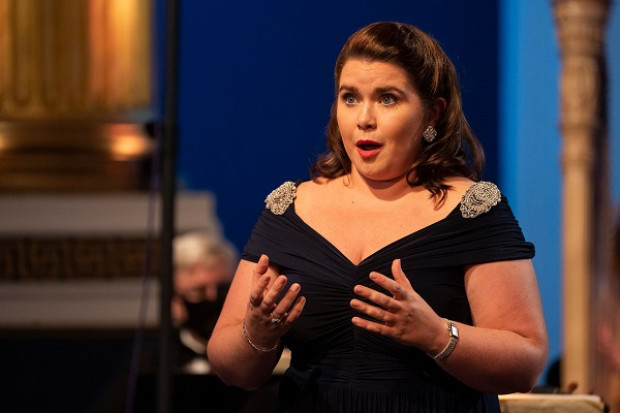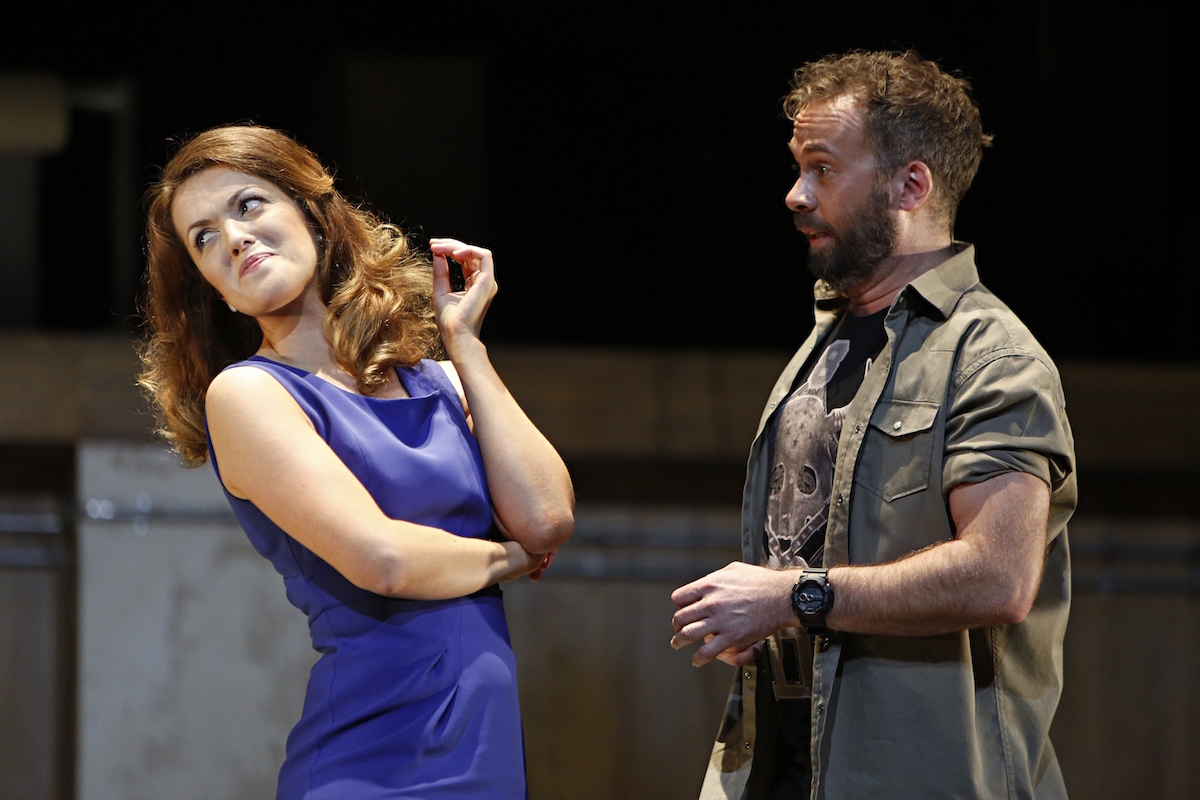
Claudia Boyle and Robin Adams in a scene from Donnacha Dennehy’s new opera.
The Last Hotel
Inspired by a real-life incident, Donnacha Dennehy and Enda Walsh’s new opera, The Last Hotel, presents us with the story of an assisted suicide in an Irish hotel. Having paid for their services, Irish Woman (Claudia Boyle) meets English couple (Katherine Manley and Robin Adams) at a hotel whose mute porter (Mikel Murfi) monkeys around the sparse deconstructed stage as bellboy, bar man and caretaker rolled into one. As in Dennehy’s Grá agus Bás, written for Iarla Ó Lionáird and the Crash Ensemble in 2007, the music moves fluidly between two different tuning systems.
The pulse-driven score pushes forward as we learn about the characters: Irish Woman talks about her husband, English Husband jokes about the buffet while English Wife reveals that she longs to be loved again. This minimal texture of fast unforgiving arpeggios and subtle harmonic changes features consistently for over half the score, responding to the characters, becoming more agitated as the situation becomes more intense. It reaches a peak half way when the three retreat for a rehearsal of the dénouement, as it were.
Perspective changes: the English woman has her doubts, and the two women bond in a touching duet that is sensitively supported with the lightest pulsations of upper strings and flutes. Everybody meets in the bar, where some bolshie karaoke ensues (featuring a hit from the 1990s Irish band B*witched) before they return to the room one last time. A final duet between the two women reveals nobody has reached any peace. To end, both musical textures swell to a climax, swallowing everything up, and the opera ends as it began, with the porter cleaning the dancefloor.
The entirely objective approach to such a grim subject matter is brave, yet by avoiding judgement, moral or backstory at the expense of psychological drama, Walsh shows up how somebody chooses to die, but seems less interested in why. This deliberate drift towards the inevitable leaves the English couple as no more than elaborate witnesses to the main character, whose predicament feels something of a fait accompli. Irish Woman seems like a modern-day Dido whose redeeming lament is a strange spot-lit karaoke-style number highlighting Boyle’s impeccable tone, but giving us no real insight into her state of mind. The quantity of text Dennehy has to set pushes him out of his comfort zone and in turn the quality of the vocal writing tends towards the arbitrary, often rising automatically at the end of phrases. Which is a shame, as he draws a ravishing array of shades out of the ensemble, performed with gusto by the Crash Ensemble. The slower just-tuned sections, reserved for moments of reflection, allow for a more nuanced vocal setting, albeit one that places considerable demands on the singers’ tessitura.
Basing an opera on the idea of an assisted suicide was a bold choice, which brought many musical and dramatic challenges, but unfortunately The Last Hotel never overcame them all: C’est la vie.
Published on 7 October 2015












